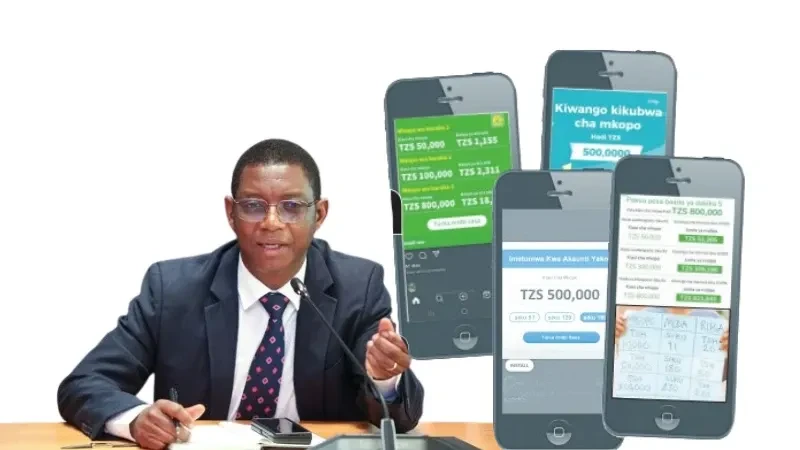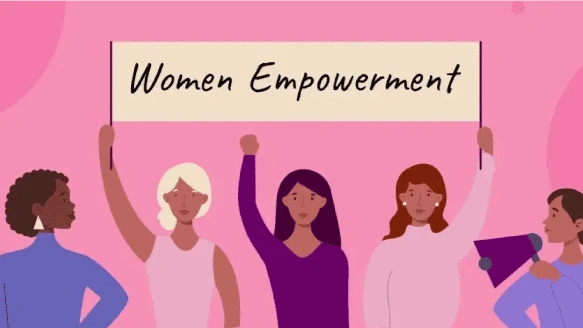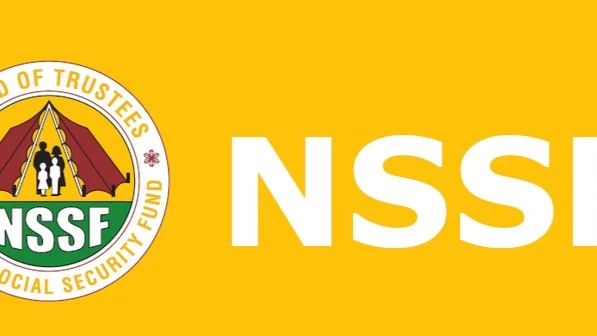BoT tightens oversight, delists 55 online lenders

THE Bank of Tanzania (BoT) has taken stronger action to regulate online lending services, receiving 16 applications for licenses but granting approval to only four providers that met required standards.
Mary Ngasa, an assistant manager in the BoT Microfinance Department, said in an interview that 55 unlicensed applications have been indexed and referred to the Tanzania Communications Regulatory Authority (TCRA) for removal from online platforms.
Licensed providers are now required to prominently display notifications confirming BoT approval, offer transparent loan terms and provide accessible customer support contact details, she stated.
BoT has uncovered instances where microfinance institutions operate multiple online lending platforms without approval, with some institutions managing up to 10 apps under one license, she further noted.
“We’ve received 16 applications, and only four have been licensed. We expect others to comply soon,” she said, elaborating that despite repeated public calls for registration, 55 unlicensed providers have been identified and placed under scrutiny.
Deogratius Mnyamani, another BoT officer, said that BoT assessed 71 applications, engaging providers, and conducted thorough vetting before granting licenses. “Many microfinance institutions bypassed regulations when launching apps,” he asserted, noting that BoT requires licensed providers to submit regular updates on their loan policies.
This includes details on loan types, interest rates, repayment terms and compliance processes, he said, whereas Dickson Gama, the central bank’s acting microfinance manager, explained that oversight was initiated in 2018, addressing numerous fraud complaints from unregulated providers.
This informed the development of stricter guidelines, he said, pointing at violations of regulations such as launching unapproved apps, which resulted in disciplinary actions against several licensed entities.
On September 24 BoT introduced new guidelines to further tighten oversight of online lending, making it mandatory for a company to operate just one such platform.
Under the rules, providers are prohibited from sharing customer data with foreign entities and restrict lenders from accessing users' phone contacts, messages or photos.
The rules also require that guarantors must be informed and provide consent before loans are approved as well as restricting borrowers from disclosing and sharing borrower’s information.
The rules also require that interest or repayment demands before the agreed-upon due date are prohibited as well as ensuring that customer service representatives use professional language and handle complaints effectively.
To ensure compliance, all licensed apps must display the provider's identity, BoT license number, and contact details. BoT also plans to introduce unique identification numbers for registered apps to track compliance, he stated.
Noting that some countries require app stores to approve lending applications before they are listed, which BoT is considering adopting similar procedures, he said that the 2018 Microfinance Act and the 2022 Personal Data Protection Act provide an adequate framework.
They offer legal protection against harassment, defamation, and unauthorized data sharing, where victims of online lending abuse can report violations to BoT for redress, he said.
A recent survey in Dar es Salaam revealed troubling practices in the online lending industry, including hidden loan terms, excessive interest rates—in some cases exceeding 80 percent of the total loan amount—and extensive harassment.
The survey also highlighted instances where unlicensed lenders publicly shamed defaulters or contacted their networks about outstanding debts, to which the central bank linked such harassment with 68 deaths of women across eight regions.
Top Headlines
© 2024 IPPMEDIA.COM. ALL RIGHTS RESERVED






















